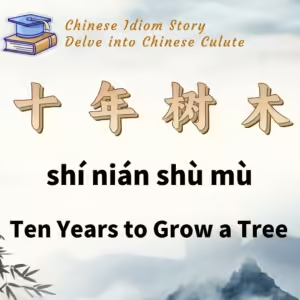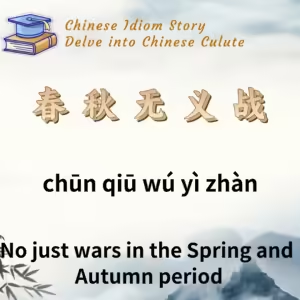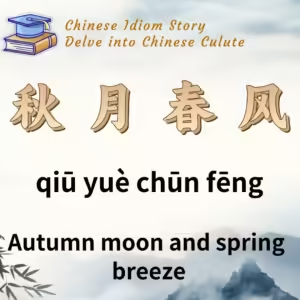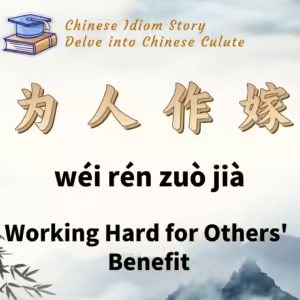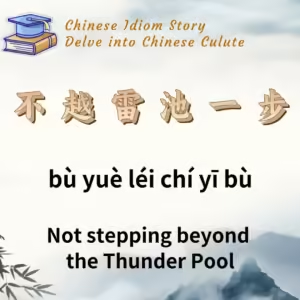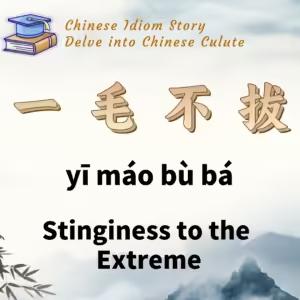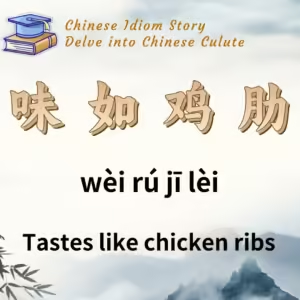
Chinese Idiom: 味如鸡肋 (Wei Ru Ji Lei)
English Translation: Tastes like chicken ribs
pīn yīn: wèi rú jī lèi
Idiom Meaning: This idiom metaphorically describes a lack of interest in something or a situation that yields very little benefit, implying that the effort involved is not worth the reward. The term “chicken ribs” refers to the small amount of meat on chicken ribs, which is hardly satisfying.
Historical Source: From Records of the Three Kingdoms: Wei Book, Biography of Emperor Wu, annotated by Pei Songzhi, citing Jiu Zhou Chun Qiu.
Idiom Story:
In the autumn of 215 AD, the ambitious warlord Cao Cao, having subdued the regional power Yuan Shao in the north, marched southward to conquer Hanzhong (present-day Hanzhong City, Shaanxi). The governor of Hanzhong, Zhang Lu, was defeated and fled to Bazhong (present-day Bazhong City, Sichuan), leaving the region entirely in Cao Cao’s hands.
In December, Cao Cao decided to return to Ye City (southwest of present-day Linzhang County, Hebei). At the time, Liu Bei’s forces were stationed in Bazhong, ready to advance northward. Fearing the loss of Hanzhong, Cao Cao appointed Xiahou Yuan as the General of the West to guard the region.
As soon as Cao Cao left, Liu Bei advanced into Yang’an Pass, ordering generals Huang Zhong and Zhao Yun to attack Hanzhong. Although Xiahou Yuan was known for his bravery in battle, he was also impulsive and lacked strategic insight. After several confrontations, he ultimately suffered a defeat at Dingjun Mountain against the Shu general Huang Zhong.
Xiahou Yuan was killed, and Hanzhong was lost. Cao Cao hurriedly led an army of 200,000 troops to reinforce the area. During this time, under Zhuge Liang’s strategy, Huang Zhong and Zhao Yun led troops to seize Cao’s supplies, which led to Huang Zhong being surrounded by Cao’s forces. Zhao Yun bravely charged into the siege to rescue Huang Zhong.
However, as Zhao Yun retreated to his camp, Cao’s forces pursued him relentlessly. In a critical moment, someone suggested that Zhao Yun shut the gates and hold his ground. Instead, Zhao Yun remained calm and ordered his soldiers to “open the gates wider and lower the flags.” Seeing this, Cao’s troops grew fearful, suspecting the camp had hidden soldiers, and retreated.
This allowed the Shu army to occupy advantageous terrain, making it difficult for Cao’s forces to advance. After several months of stalemate, Cao’s army faced increasing casualties and dwindling supplies. Observing the dire situation, Cao Cao felt anxious.
One evening, as the cook brought him dinner, there was a bowl of chicken rib soup. While pondering over the chicken ribs in the soup, Cao Cao casually mentioned “chicken ribs” when the night guard, Xiahou Dun, came to report on the watchword. Xiahou Dun didn’t think much of it and passed the word along.
However, Yang Xiu, a learned scribe, heard the phrase “chicken ribs” and pondered for a moment before exclaiming, “We’re returning to Ye City!” He quickly instructed his entourage to prepare for departure.
When this reached Xiahou Dun, he was perplexed and summoned Yang Xiu to ask, “Why would you say we’re returning to Ye City when Hanzhong hasn’t been recaptured yet?”
Yang Xiu replied meaningfully, “Chicken ribs are regrettable to discard but offer little satisfaction when eaten. This reflects our situation in Hanzhong; it’s not worth fighting for, but losing it would be regrettable. Thus, I understand the King wishes to return.”
The next morning, indeed, Cao Cao issued orders to withdraw his troops, confirming Yang Xiu’s insight into the strategic situation.
This story illustrates how the phrase “味如鸡肋” has come to represent a situation that is undesirable or unproductive, emphasizing the importance of recognizing when to let go of pursuits that offer little value.

